Using industry leading instrumentation and equipment along with the most advanced methodology available, Modern Canna provides accurate and reliable cannabinoid testing for cannabis products. This type of testing is imperative for understanding dosing and for assessing how a product may impact a consumer. As such, this testing has become one of the most scrutinized analyses that is performed by cannabis laboratories. By working with Modern Canna, Medical Marijuana Treatment Centers (MMTCs) can ensure that their products have been properly tested and that the data provided by the laboratory regarding the cannabinoid content is accurate, reproducible, and legally defensible.
How do Laboratories Test for Cannabinoids?
To test for cannabinoids in a cannabis product, the laboratory must extract the compounds of interest from the composite sample. This is typically done by using a solvent to isolate and separate the cannabinoids, however, depending on the sample type, the extraction procedure may vary. Products that are water soluble, such as gummies, hard candies, and beverages, must be extracted in a different manner. Once the laboratory has successfully extracted the cannabinoids, the sample will be diluted based on the expected concentration of cannabinoids that are present. From here, Modern Canna uses high performance liquid chromatography (HPLC) to identify and quantify the cannabinoids. This type of instrumentation is utilized for cannabinoid detection because it is a simple separation technique that allows the cannabinoids to be identified based on their known retention time. By performing this type of testing, Modern Canna is able to determine the specific cannabinoid profile with accurate concentrations for each of the compounds being measured. In turn, medical cannabis consumers can use this information to make educated decisions regarding the product they chose to purchase from a MMTC.
What are Cannabinoids?
Cannabinoids are the primary component present in cannabis. These compounds are one of the components that provide the plant with its medicinal benefits and the euphoric feeling that is associated with its use. The primary cannabinoid responsible for the psychoactive effects that consumers experience when using cannabis is tetrahydrocannabinol (THC). The other cannabinoid that most are familiar with is cannabidiol (CBD), which is non-psychoactive. While these two cannabinoids are the most well known, they are not the only ones that exist in cannabis samples. Research indicates that as many 125 different cannabinoids have been identified in the cannabis plant.
Common Cannabinoids
While the two most commonly known cannabinoids are tetrahydrocannabinol (THC) and cannabidiol (CBD), there are several other cannabinoids that exist at significant levels in the plant. As such, these additional cannabinoids are normally part of the standard testing panel that laboratories perform. Below, a list of the most common cannabinoids found in cannabis have been included, along with some information about their medicinal benefits.







Cannabinoid Analysis for Florida Cannabis
Florida law requires certified marijuana testing laboratories (CMTLs) to test for a panel of eleven (11) cannabinoids. Additionally, they must perform calculations to determine the total THC and total CBD concentrations in each sample. The list of required cannabinoids that Modern Canna tests for includes:
- Δ9-THC – Delta-9-Tetrahydrocannabinol
- Δ8-THC – Delta-8-Tetrahydrocannabinol
- THCa – Tetrahydrocannabinolic Acid
- THCv – Tetrahydrocannabivarin
- CBN – Cannabinol
- CBC – Cannabichromene
- CBD – Cannabidiol
- CBDa – Cannabidiolic Acid
- CBDv – Cannabidivarin
- CBG – Cannabigerol
- CBGa – Cannabigerolic Acid
In addition to testing for these required cannabinoids, our laboratory is also capable of testing for additional analytes that are not included in this list. Some of which include: Cannabidivarinic acid (CBDVa), Tetrahydrocannabivarinic acid (THCVa), Cannabinolic acid (CBNa), Cannabicyclol (CBL), plus some other the most common synthetic cannabinoids.
In an industry where medical marijuana patients are demanding a higher standard of care, MMTCs need a laboratory that they can trust to provide the most accurate data possible. Click here to learn more about our cannabis testing services or reach out to us directly for more information.




